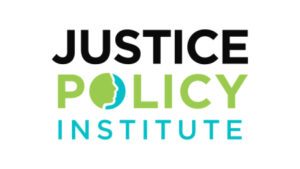
Justice Policy Institute
Grants Awarded
Unrestricted Funding
This grant provides general operating support for Justice Policy Institute, (JPI), a national nonprofit that promotes meaningful and systemic changes to the criminal legal system at the national and local levels. It produces action-based research informed by the lived experiences of impacted communities that is used by the reform field and media to shape the conversation around reform issues and fuel advocacy efforts. It provides technical assistance and resources to grassroots advocates, affected communities and systems stakeholders to support state and local policy changes and campaigns.
Young Adult Initiative at Rikers Island
The Justice Policy Institute (JPI) is a national nonprofit that works to change the conversation around justice reform and advance policies that promote well-being and justice for all people and communities. Its research and analyses identify effective programs and policies that are then disseminated to the media, policymakers and advocates. It also provides training and technical assistance to others working for justice reform. This grant will allow JPI to provide technical assistance, research and support to the NYC Department of Corrections (DOC) to develop and implement two to three units at Rikers Island for young men between the ages of 18 and 21. These units will be modeled after successful programs in two CT prisons and will prioritize meeting the unique needs of incarcerated young men.
CT Juvenile Justice Reform Documentation Project
To fund the research, writing, and dissemination of a publication called “Juvenile Justice Reform in Connecticut: How Collaboration and Commitment Have Improved Public Safety and Outcomes for Youth,” which documents the dramatic reform of Connecticut’s juvenile justice system over the past decade, resulting in better outcomes for youth and no impact on public safety. Writer Richard Mendel interviewed legislators, judges, advocates, practitioners and system leaders to recount the noteworthy events and policy and practice changes that helped spur reform and change the culture of state agencies from punitive to rehabilitative. The report provides a timeline of events, identifies the champions for reform and celebrates the state’s many successes, with the goal of maintaining momentum for positive change. And it provides insights that can help other jurisdictions address their juvenile justice issues.